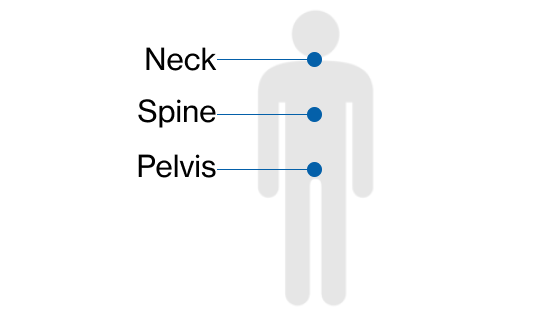Symptoms of Ankylosing Spondylitis
Ankylosing Spondylitis is a gradually progressing, chronic illness that is very often neglected or overlooked during the early stages.[1]
Early signs of Ankylosing Spondylitis
Pain which is [1]
-
Persistent
-
Located deep in the lower back (usually on both sides) or buttock
-
Worsens with rest and improves with activity
-
Different from muscular pains which generally improves with rest and worsens with activity

Sometimes eyes, bowel and lungs are also affected[2]
Keep track of your symptoms!
Every symptom has its consequence[1][2]
Since Ankylosing Spondylitis is a gradually progressing disease, it is important for you to know how to identify that your condition is worsening.
Progression can be easily identified if you become aware of the subtle signs that your body gives you. A few signs are listed below:[1][2][3]
-
Increasing stiffness in the morning
-
Daily pain
-
Restricted movement
-
Inability to do daily tasks with ease
-
Increasing dependency
-
Increasing immobility
Notify your doctor if the duration and intensity of any of these symptoms are increasing. It could be a reflection of disease progression, manifesting as bone growth at spinal vertebral edges leading to spinal fusion over time.[1]
Avoid the unwanted consequences of Ankylosing Spondylitis.
References
- Sieper J, et al. Ann Rheum Dis 2002;61(Suppl III):iii8–iii18
- Arthritis and Ankylosing Spondylitis Available [Online] at: https://www.webmd.com/back-pain/guide/ankylosing-spondylitis#1 Accessed on 20th Sep 2021
- Gran JT, et al. British Journal of Rheumatology 1997;36:766-771
Curated Tags